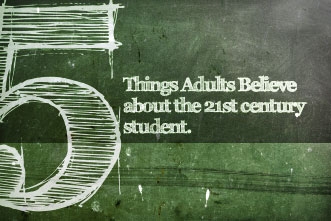Most adults have negative perceptions about today’s adolescents. Not every adult, but a lot of adults follow the assumption that the students of today’s society are only getting worse. They are nothing but problems. Adults, generally, believe that students are:
(5) Lazy and unmotivated.
(4) Entitled and spoiled.
(3) Narcissistic. I write about this teenage narcissistic epidemic here.
(2) Disrespectful toward authority.
(1) Cynical.
How you ever noticed how mean adults can be to students?
It’s very damaging to them. And unfortunately, these negative beliefs only reinforce students’ abandonment issues. When students know adults don’t like them and view them negatively, it only forces students to isolate and retaliate more.
Chap Clark, in HURT, states:
Adolescents have been abandoned. They have, therefore, created their own world, a world that is designed to protect them from the destructive forces and wiles of the adult community. (p. 21)
Midadolescents believe that few if any adults genuinely care about them. (p. 68)
This is why youth workers must stand for this next generation. It’s our job to persuade adults to stop making these negative assumptions and start inviting more adults to care for the students in our churches. While adults have serious reservations about students, the reality is that students need more adults caring for them—more than ever. The ongoing support and guidance offered by adults has been at a great decline in the past decade. Dr. James Comer (Professor of Child Psychiatry at the Yale University School of Medicine’s Child Study Center) believes this is a serious crisis America must fix. Adults really need to see students as a group they should nurture and invest in. In the book Disconnected, Chap Clark claims that students are deeply longing:
- to belong
- to be taken seriously
- to matter
- for a safe place
- to be uniquely them
- to be wanted
And God, parents and adults are the only ones who can provide what today’s students are longing for.
What assumptions am I missing? Are there any defining qualities (either negative or positive) of today’s teens that you have observed?
So how do youth pastors, student pastors, youth workers and even teachers begin to change these negative assumptions about today’s students?
What are ways to invite more adults into the lives of today’s students?













